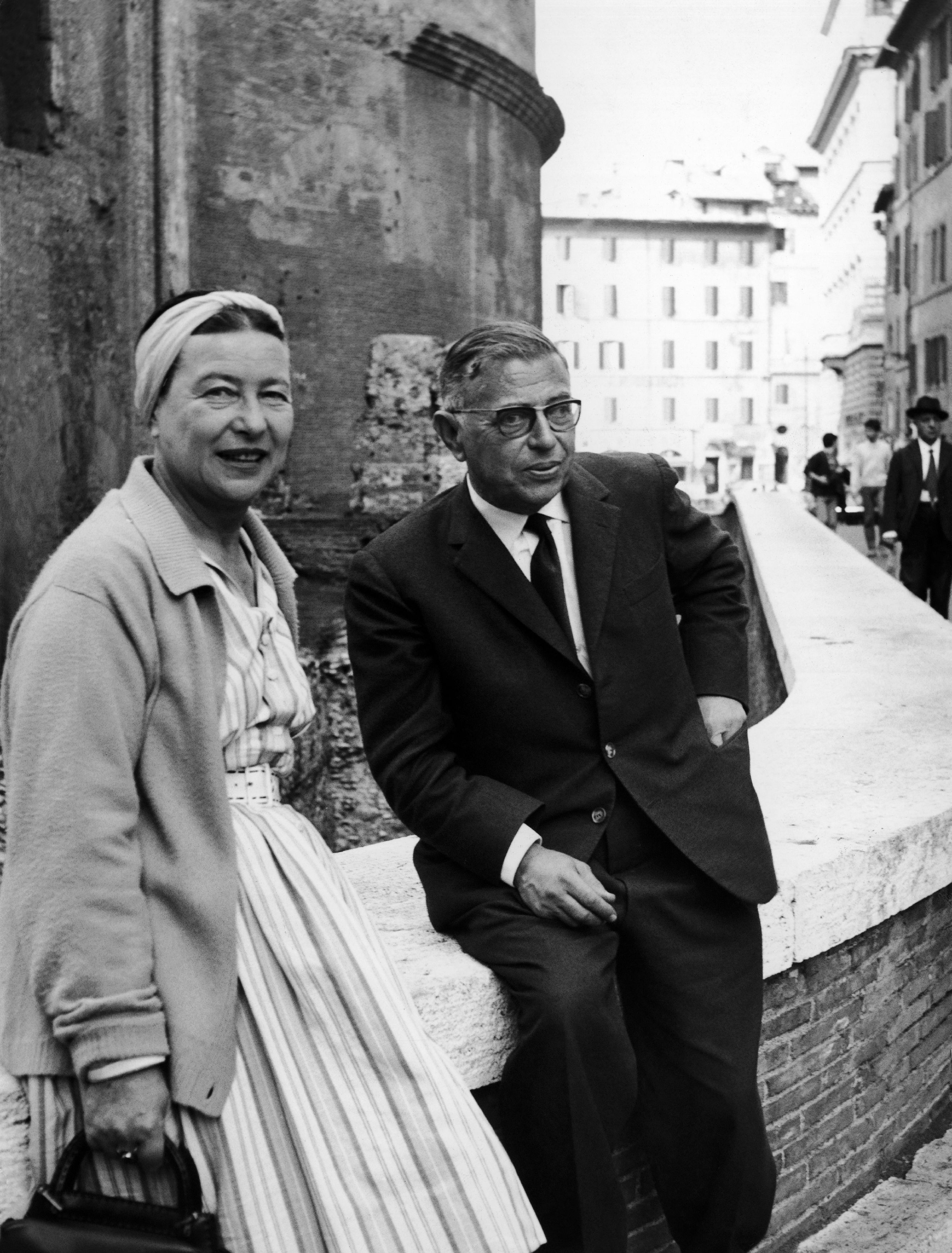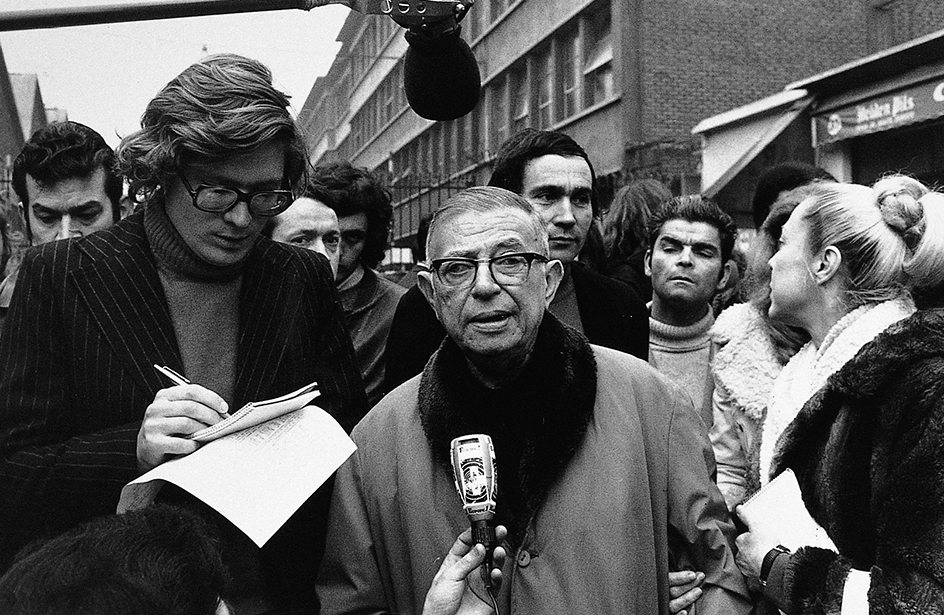Existentialism, << `ehg` zihs TEHN shuh lihz uhm, >> is a philosophy that developed in continental Europe during the 1800’s and 1900’s. The name Existentialism comes from Existentialists’ interest in the nature of human existence. Philosophers considered to be Existentialists often disagree with one another and sometimes resent being classified together. However, they share many problems, interests, and ideas.

Existentialism grew out of the work of two thinkers of the 1800’s: Søren Kierkegaard, a Danish philosopher and Protestant theologian who is generally considered the founder of the movement; and Friedrich Nietzsche, a German philosopher. The German philosopher Edmund Husserl also was a great influence on Existentialism. Husserl usually is not considered an Existentialist, but rather the founder of a philosophy called Phenomenology.
The most prominent Existentialist thinkers of the 1900’s included the French writers Albert Camus, Jean-Paul Sartre, and Gabriel Marcel; the German philosophers Karl Jaspers and Martin Heidegger; the Russian religious and political thinker Nicolas Berdyaev; and the Jewish philosopher Martin Buber.

What is Existentialism?
Existentialism began largely as a revolt against traditional European philosophy. Such philosophy reached its peak during the late 1700’s and early 1800’s with the work of the German philosophers Immanuel Kant and Georg Wilhelm Friedrich Hegel. Traditional philosophers tended to consider philosophy as a science. They tried to produce principles of knowledge that would be objective, universally true, and certain. The Existentialists rejected the methods and ideals of science as being improper for philosophy. They argued that objective, universal, and certain knowledge is an unattainable ideal. They believed that this ideal had blinded philosophers to the basic features of human existence. The Existentialists did not make the traditional attempt to grasp the ultimate nature of the world in abstract systems of thought. Instead, they investigated what it is like to be an individual human being living in the world.
Existentialism stresses that every individual, even the philosopher or scientist seeking absolute knowledge, is a limited human being. Every person must face important and difficult decisions with limited knowledge and time in which to make these decisions. This predicament lies at the heart of the human condition.
Existentialists see human life basically as a series of decisions that must be made with no way of knowing conclusively what the correct choices are. An individual continually must decide what is true and what is false, what is right and what is wrong, which beliefs to accept and which to reject, what to do and what not to do. But there are no objective standards or rules to which a person can turn for answers to problems of choice. Different standards supply conflicting advice. An individual therefore must decide which standards to accept and which ones to reject.
Existentialism concludes that human choice is subjective, because individuals must make their own choices without help from such external standards as laws, ethical rules, or traditions. Because individuals make their own choices, they are free. But because they choose freely, they are completely responsible for their choices. Existentialism emphasizes that freedom is necessarily accompanied by responsibility. Furthermore, because individuals must choose for themselves, they have their freedom and the responsibility that comes with it thrust upon them. They are “condemned to be free.”
In Existentialism, responsibility is the dark side of freedom. When individuals realize that they are completely responsible for their decisions, actions, and beliefs, they are overcome by anxiety. They try to escape from this anxiety by ignoring or denying their freedom and their responsibility. But because this amounts to ignoring or denying their actual situation, they succeed only in deceiving themselves. Existentialists criticize this flight from freedom and responsibility into self-deception. They insist that individuals must accept full responsibility for their behavior, no matter how difficult it may be to do so. If an individual is to live meaningfully and authentically, he or she must become fully aware of the true character of the human situation and bravely accept it.
Existentialists believe that people best learn about themselves by examining the most extreme forms of human experience. Existentialist writing includes such topics as death and the shadow it casts on life; the difficulty, if not the impossibility, of maintaining satisfactory relationships with other people; the ultimate futility and absurdity of life; the terrifying possibility of suicide; the alienation of the individual from society, nature, and other people; and the inescapable presence of anxiety and dread.
The influence of Existentialism
Some Existentialists have expressed their ideas in novels, poems, short stories, and plays. Existentialists feel that philosophy should not be divorced from art. Compared with other philosophers, they believe that philosophy is more like art and less like science. Existentialists also have become involved in social and political disputes. According to Existentialism, it is the responsibility of all persons to engage in such disputes and commit to a side.
Existential theologians do not try to base religion on rational demonstration. They argue that religious belief does not involve proof or disproof. It is instead a decision that each individual must make in the absence of conclusive evidence. The Existentialist interest in religion is primarily an interest in human religious experience.
